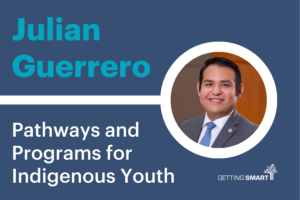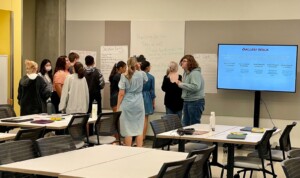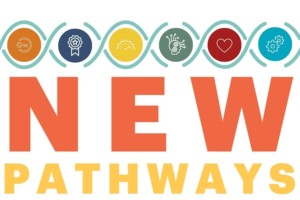10 Things New Grantmakers Should Know & Do

I recently met with a family foundation. I shared ten bits of advice for new grantmakers:
- Leverage informal (organic, interest-based) learning and find grantees that use it — we’re in the early innings of anywhere-anytime learning (and most institutions of formal education haven’t figured that out).
- Leadership matters. What you do and say matters. Find grantees willing to lead. Make grants that give people the excuse they need to lead.
- Have a theory, update it often. You need a robust theory of change — a cause-effect model of your sector and a sense of how your grants will contribute to a positive chain of events that will yield better outcomes. You should pressure-test and improve this model every week in serious dialog with smart people.
- Be strategic but leave room for responsiveness. You’re not the only smart person in the sector. Someone will have a better idea that you — leave room in your budget for the good ideas that come over the transom.
- Be entrepreneurial — if you aren’t who will be? Take some risk. Observe/measure everything you can. Listen hard. Cut your loses. Double down where it seems to be working — you’ll know five years before your program evaluation tell you.
- Advocacy offers the most leverage (and the most risk). In addition to funding advocacy efforts directly, use expanded communication efforts around your grantmaking as advocacy (i.e., the 10,000 people that read your RPF will have a bigger impact than the 100 that win grants).
- Consider unintended consequences — there will be some. Ask for a succession plan from grantees (and put in place a pause in funding contingency in your agreements). Build in sustainability in the way you structure grants.
- Lean forward. New technology often reframes old problems.
- Saying no is your job, do it well. You’ll do it 100 times more often than saying yes — you may as well be good at it and learn what you can from it.
- Don’t be an ass, arrogance is an occupational hazard.
The foundation head I was visiting added an important number 11, one that really summarizes all 10 — stewardship. Remember, it’s not your money. Donor intent is paramount. And behind each donor are thousands of lives that contributed to the endowment. Do your work in a way that honors their contributions.
This piece originally ran on Huffington Post.





0 Comments
Leave a Comment
Your email address will not be published. All fields are required.